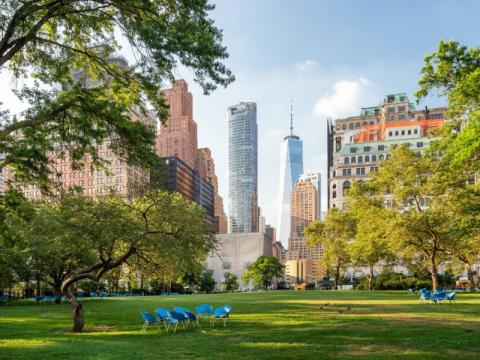The case for a green recovery from COVID-19

The past two years of lockdown, recession, disruption, and instability have exposed a fundamental truth about the ideologies and institutions which make up the global economic system, and thus shape the lives of everyone on this planet: our economies are unjust, unequal, and unsustainable. They are no longer fit for purpose.
Nations and societies have been forced through phases of triage, stabilisation, stimulus, and nascent recovery through multiple waves, and multiple variants. A return to business as usual is not possible post-COVID-19, and the window to limit global heating below 1.5°C and secure a liveable future is rapidly closing. In short, we need a green recovery.
We must seize the opportunity to guide the recovery and economic transformation, to choose a path of sustainability, equality, and prosperity for all. We need a recovery that fundamentally restructures the ways our economies and societies work; a recovery that can tackle the intertwined crises of poverty, climate change and biodiversity loss; a recovery for the benefit of all, not the few.
There are already inspiring stories of local green recoveries in action around the world. Pakistan is developing a debt-for-nature scheme to accelerate the planting of 10 billion trees, creating thousands of jobs. Germany's Emscher Landscape Park has generated an estimated 85,892 jobs and US$107 million in annual benefits to the community, while global investment in the green energy transition hit a new annual high of US$500 billion in 2020.
However, these individual pockets of progress will not add up to a global green recovery if they remain isolated and atomised. To be effective, the green economy coalition argues that any green recovery worth of the name must be global, systemic, and address four key pillars of impact: stakeholder dialogue, economic transformation, natural restoration, and governance reform. A truly green recovery must begin by listening to people around the world who are impacted most, especially those who are most vulnerable: poor people, marginalised communities, women, indigenous groups, and many others. Only if all voices are heard can a proper case for action be made, one informed by the perspectives of those it impacts the most.
The next step is the structural response: transforming the economic system so that it prioritises people over profits, long-term value over short-term gain, and natural wealth over destructive extraction. We must take radical, collective steps to fundamentally reshape our economies via a structural green recovery with bold new policy ideas, embedding new eco-social priorities for governance, through new financing mechanisms and revenue streams, and building on examples of success that are already emerging.
Finally, we must ensure that the green recovery is fundamentally accountable: accountable to citizens, to communities, and to the planet. We must ensure that the green recovery is informed by the needs of those who do not currently have a voice such as indigenous communities, children, non-humans, and those yet to be born. And we need new metrics and measurements to assess how new policies are having an impact, so that policymakers and communities can respond in real time to ensure an adaptive and responsive recovery.
Source: https://www.greeneconomycoalition.org/news-and-resources/the-case-for-a-green-recovery-from-covid-19
- Se connecter ou s'inscrire pour poster un commentaire




